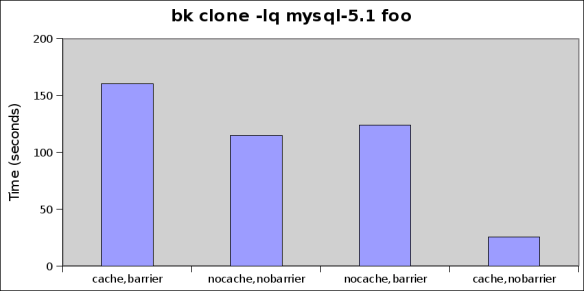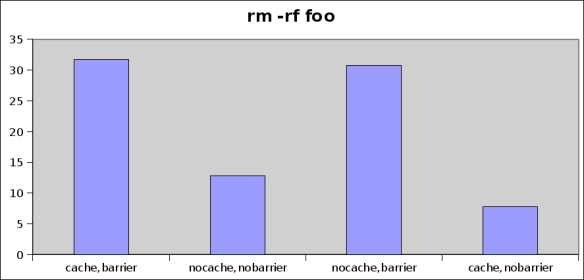The first point I’d like to make is that you’re using a Microsoft Windows API, so you have already lost. You are just not quite aware of how much you have lost.
A quick look around and you say “Ahh… GetFileSize, that’s what I want to do!” Except, of course, you’re wrong. You don’t want to use GetFileSize at all. It has the following signature:
DWORD WINAPI GetFileSize( __in HANDLE hFile,
__out_opt LPDWORD lpFileSizeHigh
);
Yes, it supports larger than 4GB files! How? A pointer to the high-order doubleword is passed in! So how do you know if this errored? Return -1? WRONG! Because the high word could have been set and your file length could legitimately be 0x1ffffffff. So to find out if you actually had an error, you must call GetLastError! Instead of one call, you now have two.
The Microsoft documentation even acknowledges that this is stupid: “Because of this behavior, it is recommended that you use GetFileSizeEx instead.”
GetFileSizeEx is presumably named “Ex” as in “i broke up with my ex because their API sucked.”
You now have something that looks like this:
BOOL WINAPI GetFileSizeEx( __in HANDLE hFile,
__out PLARGE_INTEGER lpFileSize
);
Which starts to look a little bit nicer. For a start, the return code of BOOL seems to indicate success or failure.
You now get to provide a pointer to a LARGE_INTEGER. Which, if you missed it, a LARGE_INTEGER is:
typedef union _LARGE_INTEGER { struct {
DWORD LowPart;
LONG HighPart;
};
struct {
DWORD LowPart;
LONG HighPart;
} u;
LONGLONG QuadPart;
} LARGE_INTEGER,
*PLARGE_INTEGER;
Why this abomination? Well… ” If your compiler has built-in support for 64-bit integers, use the QuadPart member to store the 64-bit integer. Otherwise, use the LowPart and HighPart members to store the 64-bit integer.”
That’s right kiddies… if you’ve decided to loose from the get-go and have a compiler that doesn’t support 64-bit integers, you can still get the file size! Of course, you’re using a compiler that doesn’t have 64bit integer support… and the Microsoft documentation indicates that the GetFileSizeEx call requires Windows 2000… so it’s post y2k and you’re using a compiler without 64-bit ints? You have already lost.
Oh, but you say something about binary compatibility for apps written in the old days (handwave something like that). Well… let’s see… IRIX will give you 64bit numbers in stat (stat64) unless you build with -o32 – giving you the old ABI. I just can’t see a use for GetFileSize….. somebody please enlighten me.
Which header would you include? Any Linux/UNIX person would think of something logical – say sys/stat.h (Linux man page says sys/types.h, sys/stat.h and unistd.h). No, nothing sensible like that. It’s “Declared in WinBase.h; include Windows.h”.
So… you thought that obviously somebody went through the API and gave you all this Ex function goodness to get rid of mucking about with parts of a 64bit int? You were wrong. Let me say it with this:
DWORD WINAPI GetCompressedFileSizeTransacted(
__in LPCTSTR lpFileName,
__out_opt LPDWORD lpFileSizeHigh,
__in HANDLE hTransaction
);
I’ll now tell you that this was introduced in Vista/Server 2008.
Obviously, you want to be able to use Transaction NTFS on Windows Vista with a compiler that doesn’t have 64 bit ints. Oh, and you must then make another function call to see if something went wrong?
But you know what… perhaps we can get away from this complete and utter world of madness and use stat()…. or rather… perhaps _stati64().
Well… you’d be fine except for the fact that these seem to lie to you (at least on Windows Server 2003 and Vista) – it seems that even Explorer can lie to you.
But perhaps you’ve been barking up the wrong tree… you obviously don’t want to find the file size at all – what you want is to FindFirstFile! No, you don’t want FindFirstFileEx (in this case, Ex is for Extremely complicated). It’s meant to be faster too… you know, maybe.
So remember kids, smoke your crack pipe – you’re going to need it if using this thing called the Microsoft Windows File Management Functions.
Like this:
Like Loading...



